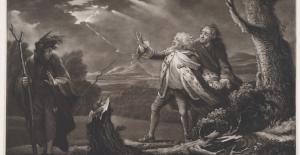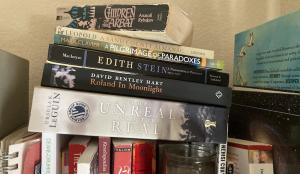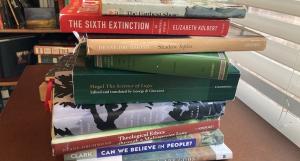
Does tragedy serve a moral purpose?
As my state carries on with funerals this week for the children and teachers killed in Uvalde, one moment in particular has been on my mind. It’s in a video someone took during that harrowing hour when the first responder team was still trying to figure out what to do next. A man calls out “You know they’re just kids in there, right?”
You can hear so much in his voice. Anger, grief, fear, desperation. And maybe more than anything, a sense of helplessness. Can I really not do anything but stand here and let this tragedy unfold? It’s not unlike what we hear in pleas for war-ravaged Ukraine. Vocalized helplessness.
Tragedy and Helplessness
I wrote recently about the Uvalde shooting, and a praying-then-acting response. It’s usually not the case that there is nothing we can do by way of a long term, deliberative response. But today I want to write about the moment when it happens. Regardless of what happens next, what can we say about the situation we all to often find ourselves in, when we witness the suffering of others and are overwhelmed by our own helplessness?
The great Greek tragedies —Oedipus Rex, Antigone, for example–ask this question. In each, there are particular moments when the plot could go the other way. When the king could turn around and avoid the cross roads. Or later plays: there are stories about stagings of Othello in which audience members cracked at the tension, and rose from their seats to shout “she didn’t do it!” to the hero as he approached his wife’s bed.
Shakespeare’s tragedies–I write about this in my book— put this question of our own helplessness to us in a uniquely self-aware way. I mean that the Bard is asking us to ask the question about what moral purpose we think watching a tragedy serves. And he knows he is asking it.
Seeing Each other in King Lear
This is especially true in King Lear. From the beginning, we watch characters suffer, and we watch them watching each other suffer. Watching, in fact, emerges as the key theme. Will Lear see what he is doing to his loving daughter and loyal friend? Will the gullible Duke of Gloucester see that he is being manipulated by his son? When we have to watch Gloucester’s enemies gauge his eyes out, the metaphor emerges in graphic horror. Everyone seems blind to each other’s pain.
Hope doesn’t ever really emerge in Lear. What happens, instead, is that blindness becomes complicated. “I stumbled when I saw” (4.1), Gloucester says. Now that he’s blind, though, he learns to see anew, especially when he comes into the presence of the sufferings of the King.
Lear himself is at times comical in his resistance to seeing the sufferings of those around him. Coming upon a crazed and mud splattered man who raves about the demons that torture him, Lear can still only talk about himself. Here is one in a bad way, he says. It must be that you have “given all to thy two daughters, and art thou come to this,” (3.4). Cue yet another myopic tirade about the king’s own unjust treatment.
On the other hand, this very crazed man, who is in fact in disguise to escape his own suffering, finds himself moved by Lear’s plight in the next scene. “My tears begin to take his part so much/ They mar my counterfeiting” (3.5). He finds that his own self-involved storyline is interrupted by his need to stand and just weep for a moment for the broken King.
The “Purpose” of Literary Tragedy
I think we see here the purpose–or at least moral invitation– of Lear. Perhaps even of all literary tragedy. We’ve gotten the point, I mean, when we find ourselves asking the characters to notice and acknowledge the sufferings of one another. This is perhaps even why Shakespeare puts all this before us in a play set in pre-Christian England. This is a world where the gods can’t be trusted. “They kill us for their sport” (4.1). We can seek for deeper meaning in suffering, but ultimately there is none. Life hurts. And sometimes all we can do is watch. Or go blind by pretending we don’t see.
When I hear the pain in that man’s voice down in Uvalde, I am reminded of lessons I’ve learned from Shakespeare and so many other authors. James Baldwin once said that it wasn’t until he read Dickens and Dostoevsky that he began to suspect that his own pain wasn’t just isolating. It could also become the beginning of a deep connection with others who have hurt differently. Something about just seeing it and admitting that we see it awakens us from our self-involvement. I think it makes us more like the soft-skinned creatures God made us to be.
It’s not so much that we understand and feel one another’s pain. It’s more often that we cannot, but the mere acknowledgement that we can’t calls up something true and good in us. We wear body armor that keeps us from simply saying, “Oh my, that pain must be unbearable.” When we do that, I suspect, we become a little more human. We’re standing there with that man outside the school, our voices shaking on the edge of hysteria, unable to keep from thinking about what is happening before our eyes. Not on stage now, but in real life fourth grade classrooms on the other side of police tape.
There’s a deep connection to the gospel somewhere in all of this. Jesus is so often “moved with compassion” at the sufferings of others. The life of another is fragile, beautiful, and beyond my control. And in that, we are all in this together. That, ultimately, may be what we learn from tragedy, literary or real.











